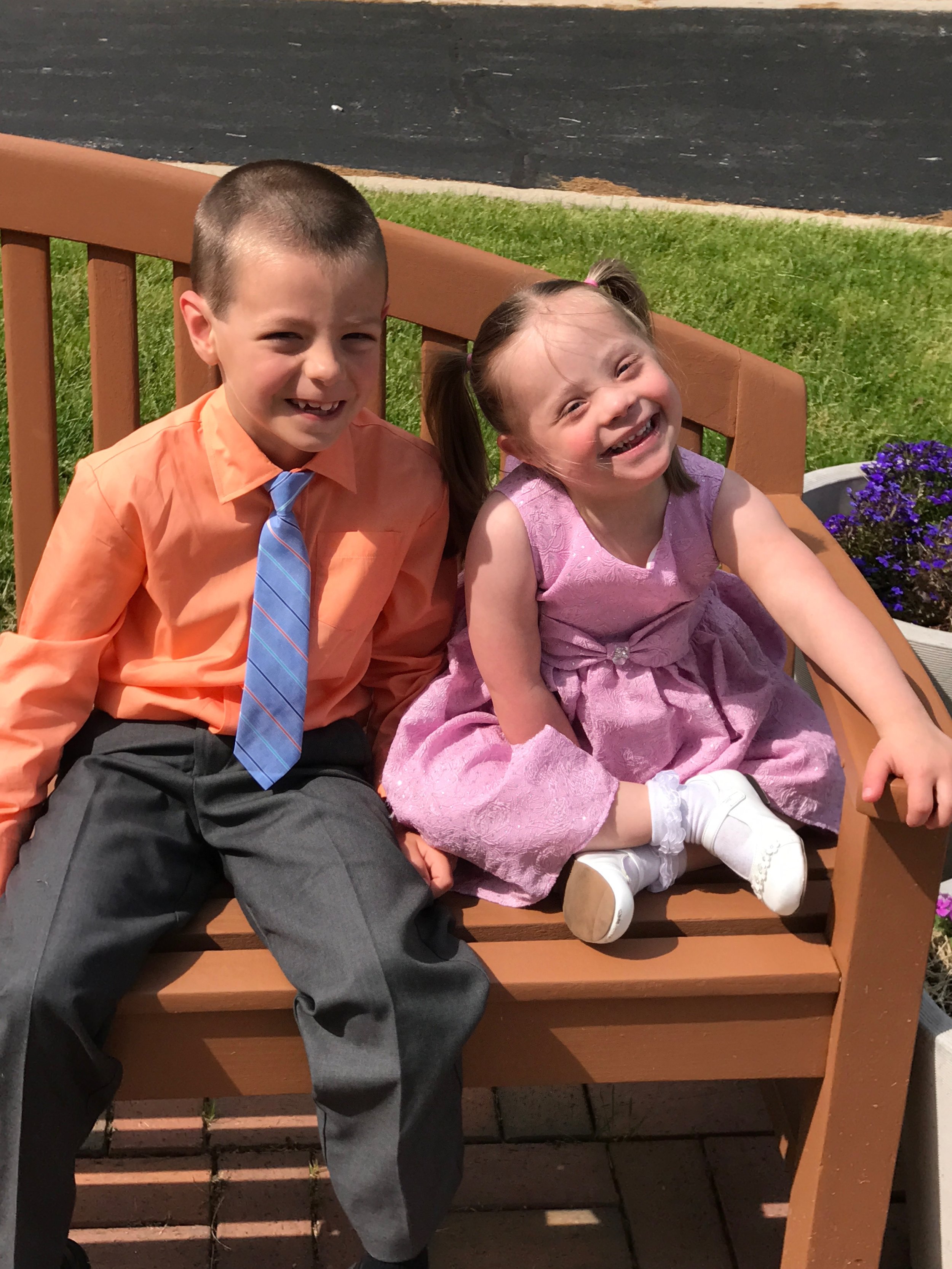By: Brett Braza, DSAW Marketing Intern
Raising a child with Down syndrome may present you with new and diverse challenges. Specifically, it might require a huge adjustment for the siblings of your child with Down syndrome. This blog posts gives three pieces of advice for parents regarding their typically-developing children and three pieces of advice for siblings of individuals with Down syndrome.
3 Tips for Parents
1) Explain The Situation
Make sure to sit down with your child and explain the situation of how having a child with Down syndrome might require more attention. Define what Down syndrome is and how it affects your child as a big brother or sister. Acknowledge that just because they have Down syndrome does not mean their sibling should be treated any less or are not capable to do anything their heart desires
2) Spend Time With All of Your Children!
Since all children are unique and have varying levels of individual needs, it is difficult to balance the time evenly between them. Instead, we recommend you make it a point to spend time with each of your children on a daily basis. Children with Down syndrome may require more attention, but devoting special time to their siblings will help the others feel valued.
It is important to pay attention and track the mood changes of your children. A new addition to the family can cause huge influxes in emotion. Acknowledge their feelings and ask how they are personally feeling about this new adjustment. If signs of depression or a heightened level of anxiety emerge, make sure to provide your child with help or resources available as soon as possible.
3) Do Not Give Your Other Children Too Many Responsibilities
Although sometimes it may be nice to have an extra hand to help you out in caring for your child with Down syndrome, it is recommended you do not push for older siblings to carry too many responsibilities. Giving your child special tasks involving the new sibling, however, may lead to quick acceptance.
3 Tips for Siblings of Individuals With Down Syndrome
1) Be Patient
At first, it might be a huge change to add a new brother or sister to your family. An individual with Down syndrome may require more attention right away and that’s okay. There might be a shift in attention towards the new baby, but that does not mean your parents or anyone else loves you any less. Additionally, your sibling might have a harder time learning how to read or walk, but that does not make them any less. As an older sibling, be patient, because this new sibling will look up to you for all you do.
2) Be Understanding
Down syndrome does not define a person. In fact, a sibling with Down syndrome is more alike than different. They have hobbies and interests, just like you! They like to laugh and play. Although they might have Down syndrome, you should know they are capable of so much, and they will exceed expectations in incredible ways. Make sure to cheer them on along the way!
3) Let Them Love You And Love Them Back
Having a sibling with Down syndrome is not a bad thing or something to be embarrassed about—you should know that by gaining a sibling with Down syndrome, you are gaining a friend who will provide unconditional love and happiness. They care so much about you and want to know everything about you—they just want to be your friend!
A new sibling in the family can be challenging for any young kid. Hopefully these tips can provide guidelines or at least provoke ideas about how to handle a similar scenario!
Information gathered from the following resources:
https://www.ndss.org/resources/caring-for-your-family/.
https://themighty.com/2014/11/things-you-understand-when-your-sibling-has-down-syndrome/










